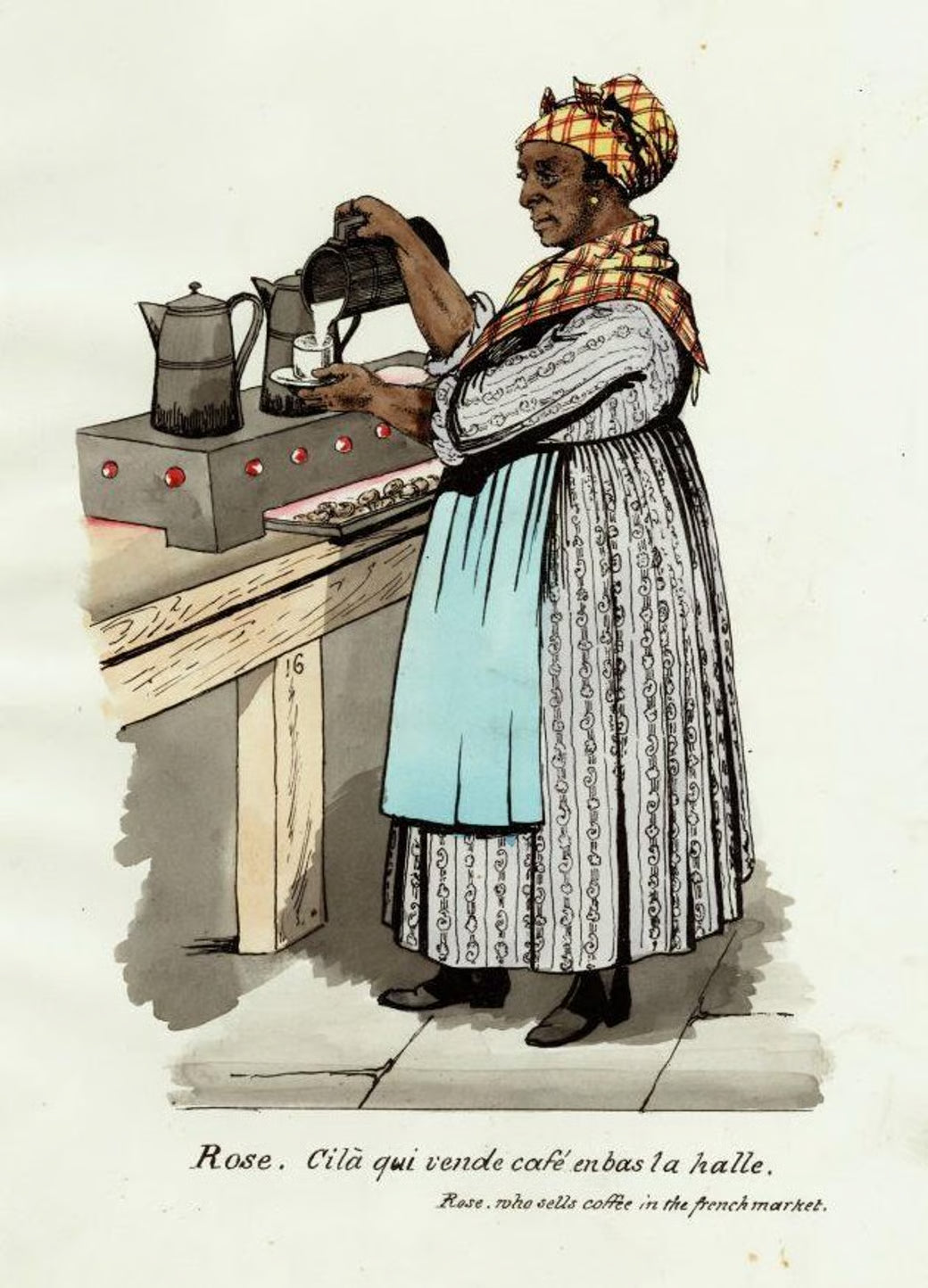
Legacy Journal: Rose Nicaud — Brewing Freedom, One Cup at a Time
Share
In the heart of 19th-century New Orleans, under the shade of the French Market halls, a woman’s voice once echoed through bustling crowds: “Café noir! Café au lait!” That woman was Rose Nicaud — born into enslavement, she would come to embody resilience, entrepreneurship, and community in a city built on contradiction.
From Enslavement to Entrepreneurship
Jari C. Honora’s recent research for the Historic New Orleans Collection shines a brighter light on Rose’s journey. Born around 1812 or 1813, Rose and her family were sold multiple times during her youth among a network of bakers and vendors. hnoc.org Despite that instability, she learned the craft of street vending and baked goods through her family’s work. In her early adulthood, Rose began selling coffee on Sundays — a small act of agency in a world designed to deny her autonomy. hnoc.org
Through careful saving and entrepreneurship, Rose purchased her own freedom around age 27 or 28. hnoc.org She then established a permanent coffee stall in the French Market, shifting from a mobile cart to a stable presence with seating, conversation, and a ritual for the people of the city. hnoc.org+2hnoc.org+2
Her coffee became legendary — praised in local press, memorialized in art, and remembered in oral history as “a benediction that follows after prayer.” hnoc.org+2frenchcreoles.com+2
Why Her Story Matters to Viola’s Heritage
Rose Nicaud is not merely a historic footnote — she is a living lesson in how food, culture, and resistance are deeply intertwined. At Viola’s Heritage, our rallying cry is “A Taste That Tells the Truth.” Rose’s life was a testament to that: she transformed a cup of coffee into an act of survival, hope, and freedom.
By selling coffee with her voice in the French Market, she shaped a space where people of all walks — laborers, visitors, Creoles — could converge. She turned daily ritual into a scaffold of community. That’s the legacy we trace when we bake and teach: that food is not neutral. It carries memory, identity, and possibility.
Rose also quietly opened doors for Black women entrepreneurs. Her success paved the way for Les Vendeuses — women who sold pralines, calas, coffee, and other foods in the streets and markets of New Orleans. frenchcreoles.com+3hnoc.org+3Dat NOLA Chic+3
The Legacy Work of Jari & HNOC
The work by Jari Honora and the Historic New Orleans Collection is more than archival — it is restorative. By assembling fragmented records, interviews, and historical sources, Jari reclaims Rose’s narrative from silence. hnoc.org In doing so, HNOC ensures that future generations can walk back through the streets Rose walked and hear that chant: “Café noir!”
At Viola’s Heritage, every time we teach a Coffee & Calas class, we invoke Rose’s spirit. Every time someone brews Cora's Girl Coffee and eats our products at home, we hope they taste not only flavor, but continuity — the echo of that woman’s resilience.
Reflection Prompt:
If Rose could rise from a coffee cart to entrepreneurship, what small act today might you use to leave a legacy?
